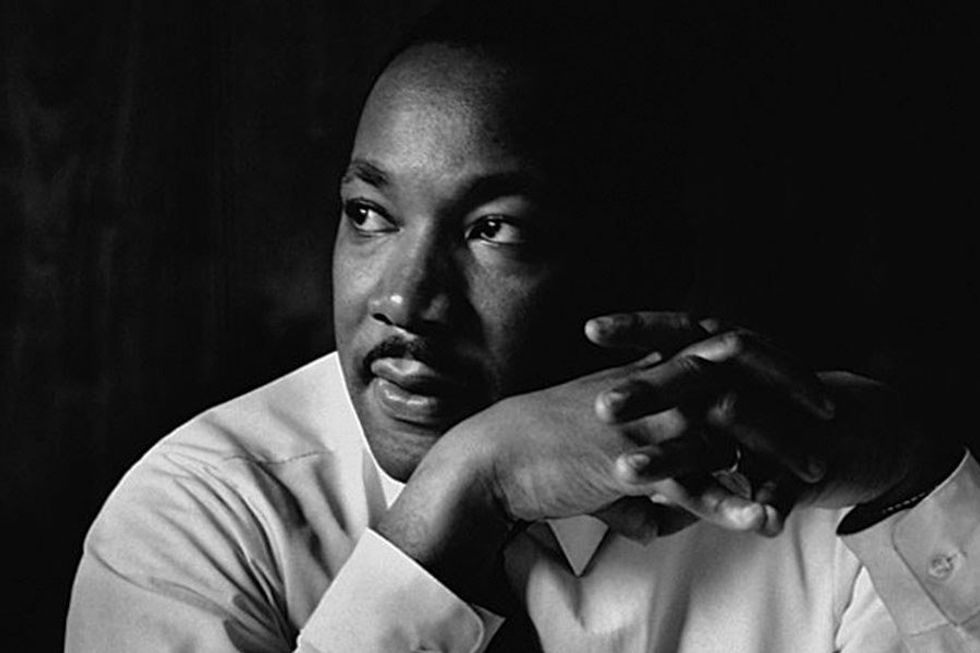Imagine starting a game of Monopoly already in jail. You do not pass go, and you do not collect $200 for three hours.
Now, imagine after these three hours spent in jail with no income coming in, you’re released. Most if not all of the property you had is now already owned by someone else. The utility companies are owned. The railroad companies are owned. Several players have a monopoly by now, and you have nothing. More than likely, you will be one of the first people to go bankrupt.
Now, imagine that this game is called ‘Real Life.’
Imagine that the jail is now the Trans-Atlantic Slave Trade.
The three hours left behind is now 300 years.
Imagine, just for a second, that the Trans-Atlantic Slave Trade was a crime against humanity that still needs to be answered for, because while the other ‘players’ of this game called ‘Real Life’ became rich off of the enslaved African, the enslaved African brought to the shores of America did not have a way to earn income.
In essence, he started the economic game late.
In a New York Times article called “The Case for International Reparations for Slavery Is Moral and Lawful, Even If Hard to Prove” the writer, Ayesha Bell Hardaway, says,
“The United States owes reparations to African Americans, my research shows, because it breached a fiduciary duty under American common law.”
“The Freedman’s Bureau was established after the Civil War…to assume responsibility for negotiating and enforcing wages for the benefit of former slaves. The failure of the Bureau to perform those duties and its subsequent closing in 1872 serves as a concrete example of the breach.”
With these words, Hardway describes the ineffectiveness of The Freedman’s Bureau, and after it, Blacks believed and were told that they should receive “forty acres and a mule” to make up for the 300 years of being left out of the economic game.
But imagine we’re back in the game of Monopoly, and after getting out of jail three hours after the game’s start with no income or property, another player promises to give you a couple properties and some money while a third player says, “No need. Let him lift himself up by his own bootstraps,” even though you have no bootstraps because you have no money.
In essence, that is what happened to the once enslaved African. He was never given his “forty acres and a mule” that was promised, and he was told by the players who got wealthy off of him to lift himself up because, if they did it, there should be no problem for the once enslaved African to do it. In the words of Dr. Martin Luther King Jr.,
“It’s all right to tell a man to lift himself by his own bootstraps, but it is [a] cruel jest to say to a bootless man that he ought to lift himself by his own bootstraps.”
Today, the effects of this failure of the once enslaved African to lift himself up is prevalent among the Black population of America. The Black unemployment rate is higher than that of Whites, Black incarceration rates are higher, and Black dropout rates are higher. Blacks are disproportionately higher in these statistics than Whites.
These effects are backed up by an article published on open.edu. The article talks about the consequences of the Trans-Atlantic Slave Trade.
“The long-term economic exploitation of millions of black slaves…produced deep social divides between the rich white and poor black communities, the consequences of which still haunt American societies now, many years after emancipation.”
The solution to get Blacks back into the economic game?
Reparations must be given in the form of primarily land.
Land is the basis of economic activity, and without it, no people can be truly free. 100 million acres of land would be a great start to get back in the game.
That’s approximately 4.3% of the United States, or, in Monopoly terms, approximately 1 piece of property.





















